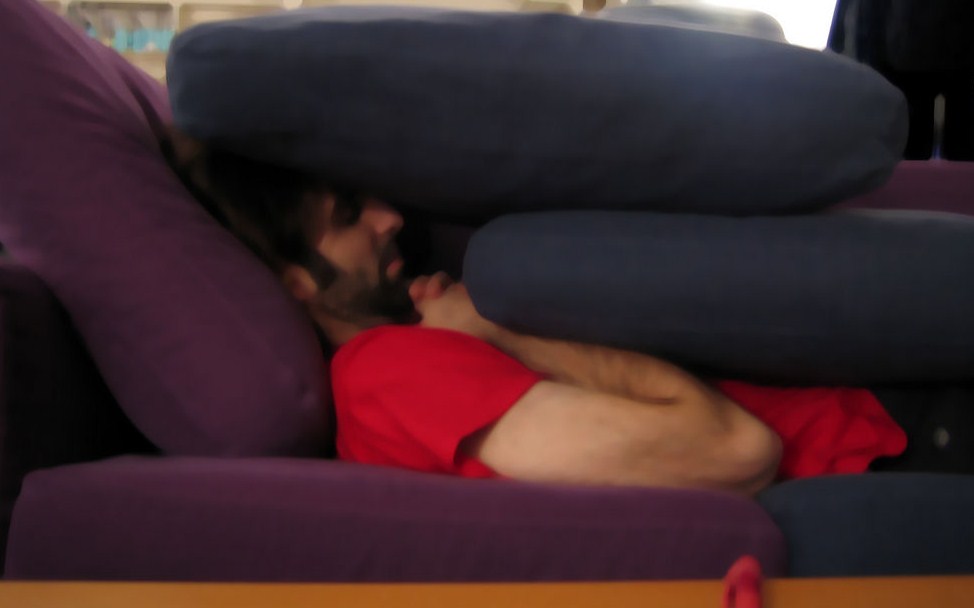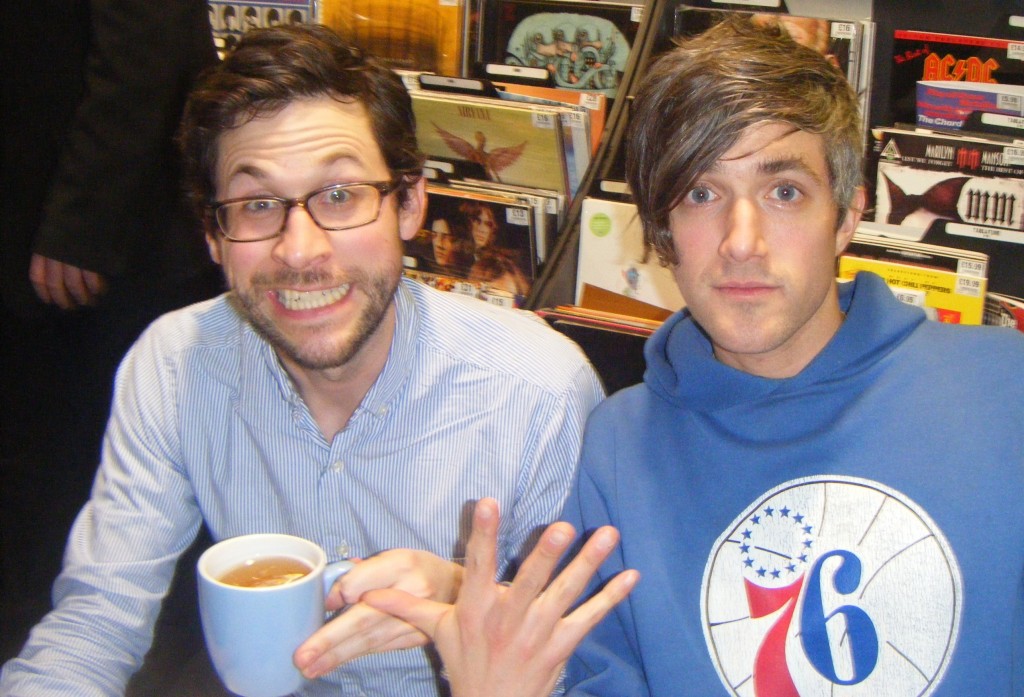 My nephew-the-biology-graduate-student sacrificed several days and a certain amount of money to come to a family reunion and seemed honestly interested in talking to the relatives, so I thought, ok, maybe this is a little vacation from the lab, maybe he’s relaxing. Except I’d look over at him sprawled on the couch and say, “What are you reading?” and he’d get a funny look and say, “Oh nothing, just a paper,” meaning a dense, opaque, difficult scientific journal article. And when I asked him how things were going at school, this normally close-mouthed kid started talking and didn’t stop, and he wasn’t sounding cheery.
My nephew-the-biology-graduate-student sacrificed several days and a certain amount of money to come to a family reunion and seemed honestly interested in talking to the relatives, so I thought, ok, maybe this is a little vacation from the lab, maybe he’s relaxing. Except I’d look over at him sprawled on the couch and say, “What are you reading?” and he’d get a funny look and say, “Oh nothing, just a paper,” meaning a dense, opaque, difficult scientific journal article. And when I asked him how things were going at school, this normally close-mouthed kid started talking and didn’t stop, and he wasn’t sounding cheery.
Freeman Dyson wrote: “The average student emerges at the end of the Ph.D. program, already middle-aged, overspecialized, poorly prepared for the world outside, and almost unemployable except in a narrow-area of specialization. . . . I am personally acquainted with several cases of young people who became mentally deranged, not to speak of many more who became depressed and discouraged, their lives ruined by the tyranny of the Ph.D. system.”
Dyson himself declined to participate in the system and does not have a PhD. But nowdays, he goes on to point out, not having one means not being a scientist. Getting one means years of school beyond college, then a couple of years each of one or two or three postdoctoral fellowships before finding a job in which your research is likely to be directed by someone else, or an academic post at which you can begin the years of working toward tenure. Middle-aged, overspecialized, mentally deranged, depressed and discouraged seems about right. The system is brutal.
The demographics (jobs per PhD, etc.) are also brutal (read the comments on that link), but watching my nephew, I’m less interested in the demographic than in the social and personal. I’ve spent years listening to scientists talk, and here’s a small and edited, but fair sample.
My husband-the-(retired)-academic-physicist: The general trajectory of a comer is: Go to the right grad school and work with a great mentor who heads-up’s his friends that you’re a comer. Pick your own thesis: your mentor sets the playing field but you make the game and the sooner you make it yours, the better. Then get a postdoc [the fellowship] to take anywhere to do anything with anyone — or else you’re theirs and you do only what they need you to. As a postdoc [the person], you help the grad students who help you. The postdoc supervisor knows and alerts people. Finish your research during the postdoc and get published. You have to have taste, see where science is going, see what the critical experiment is in the field that interests you. The field has to be going somewhere or sooner or later, you drag it there yourself.
 Astronomer: I did thousands of stars in nearby galaxies to find whether the distribution of the initial masses depends on the type of galaxy. It didn’t.
Astronomer: I did thousands of stars in nearby galaxies to find whether the distribution of the initial masses depends on the type of galaxy. It didn’t.
Astronomer: I had a hard time in terms of self-confidence. For three months I was too petrified to think of new ideas. I battle my own image. I have a photo [of my mentors] and they thought I could do it. So when I think about whether I could be a mover and shaker, I think, Why not? You have to suss things out, scope things out, get the scoop on a field and how things are done and figure it out.
Astronomer: Doing a PhD is a soul-killing process.
Astronomer: Basically I got really good at figuring out how to measure radial velocities. So [an older grad student], he’s like, I need M7 radial velocities. So we figured the next best thing was to just try and build this M7 template. So that worked. And then [the grad student] is like, this is really cool. You should just do it for all the M stars. I was like, eeh, all right. So I downloaded all the data and I made the fatal error, I forgot to remove the galaxies. And the M0 and M1 bands had 80,000 or 100,000 spectra in them. And they were all galaxies, so many of them were galaxies. There were just so many, so many galaxies. But we ended up constructing a full set of templates for M stars. And that was really cool. It was like, yeah well, maybe I’m cut out for this science thing after all.
How do they get through it? With invention and creativity and a high degree of brains; with the social sensitivity to figure out and use the professional hierarchy; with both dumb perseverance and intense investment in research whose outcome is intrinsically uncertain; and with love.
Astronomer: At age 10 or 12, I had a bed under a north-facing window and watched the stars, and soon I would rather watch the stars than sleep.
Astronomer: I had a telescope, I was maybe 12, a two or three-inch refractor. The first time I looked at Saturn, I was just so excited. The fact that the light from it is landing on your eye – Saturn is really there.
Astronomer: It explains what people want to know the answers to – the same answers that some people get from religion. Why are we here, where did we come from, what’s out there, where are we?
Astronomer: I just love this stuff so much.
___________
Dyson quote: From Eros to Gaia, Pantheon, 1992, p. 195.
Photos: Mister Wind-Up Bird; Stuart1000
This is all so true but if I had it to do over again, I would do it anyway. Actually, those school years were the best years of my life.
Dave, I’ve heard more than one old scientist say that. A bunch of scientists working in a group said they loved it because it was so much like being a grad student again. I think there’s something about working flat-out surrounded by people doing exactly the same.
I’m not sure I would. I loved my undergraduate degrees so much but it’s because I like knowing a little bit about everything. A PhD wants you to know a ton about a tiny thing, which I don’t find nearly as interesting. I would have gone for my MS but I’m not sure about the PhD.
I didn’t get a PhD, but much the same is true for a Masters in the sciences (it’s just shorter lived and less of a sacrifice). I have mine in geology and I miss the constant camraderie with like-minded peers.
I do think anyone who actually finishes a graduate degree is mostly mentally deranged. 😉